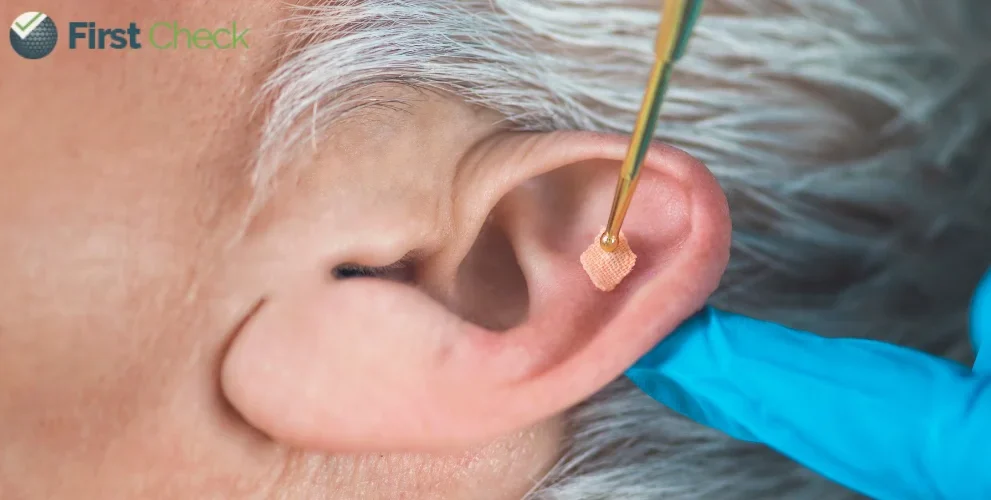Fact-check: The science behind auriculotherapy
Author
Author
- admin / 2 years

- 0
- 2 min read

Author
Proponents claim that stimulating specific points on the ear can treat various health conditions affecting different parts of the body.
A YouTube video in Hindi (with 4.2K+ views) of a recent podcast episode with a physiotherapist in India has been doing the rounds on social media platforms. “Is there any evidence to support the science behind piercing of ears, as claimed by the physiotherapist in the video?” asks a First Check reader.
The idea that the human ear is a microsystem that represents the entire human body and that each part of the ear corresponds to a human body part is the basis of a form of alternative medicine called ear reflexology or auriculotherapy. Proponents claim that stimulating specific points on the ear can treat various health conditions affecting different parts of the body.
However, despite its popularity in some alternative medicine circles, auriculotherapy has failed to demonstrate consistent, reliable results in well-designed scientific studies. The few studies that show positive outcomes often suffer from methodological flaws, such as small sample sizes, lack of proper controls, or inadequate blinding procedures.
For example, a systematic review published in the Journal of Alternative and Complementary Medicine in 2017 examined the efficacy of auriculotherapy for pain management. The authors concluded that while some studies reported positive results, the overall evidence was of low quality and insufficient to support its use as a pain treatment.
Critics argue that any perceived benefits from auriculotherapy are likely due to the placebo effect. The act of receiving attention and care, combined with the expectation of improvement, can lead to temporary relief of symptoms. This phenomenon is well-documented in medical research and does not indicate the efficacy of the treatment itself.
As far as auriculotherapy is concerned, the evidence available currently is limited, and further studies will be required to better assess the role of such therapies in the treatment of patients with various diseases.
That said, it’s important to be aware of the potential risks associated with auriculotherapy – namely, infection, bleeding, and allergic reactions to the materials used. While these risks may generally be low, they highlight the need for exercising caution when considering unproven remedies.
Want to fact-check any health-related claims? Mail us at hello@firstcheck.in or WhatsApp on +91 9311 223145.
Read More : Video gamers at risk of irreversible hearing loss, tinnitus: Study










